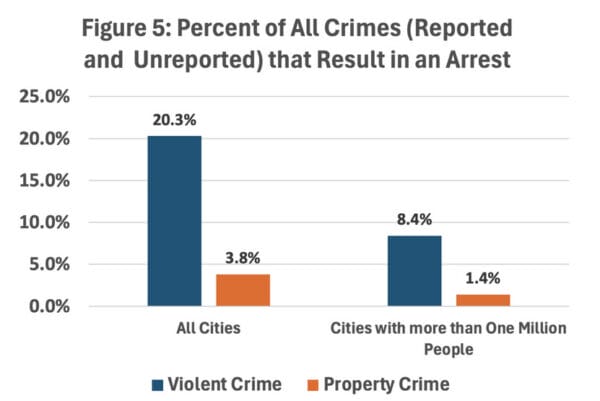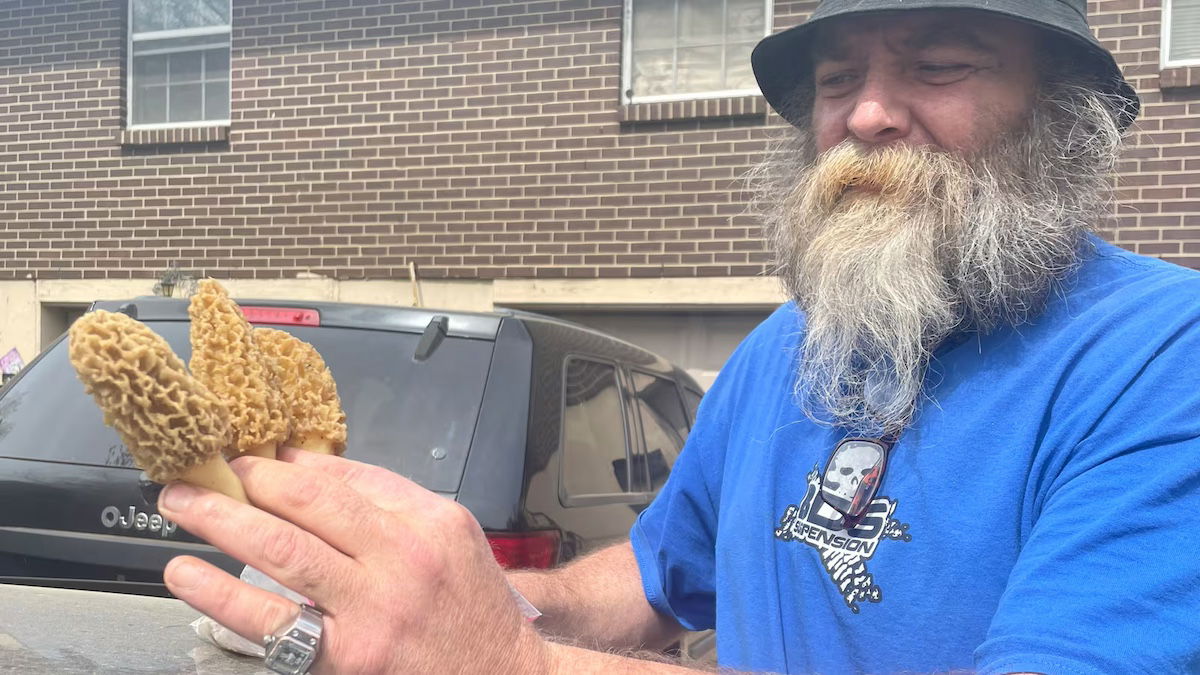
A paper at the Crime Prevention Research Center (CPRC), founded by researcher John Lott, shows how faith in the police, arrest rates, and crime reporting are all interrelated. The paper is titled ” The Collapse in Law Enforcement: As Arrest Rates Plummet, People Have Been Less Willing to Report Crime,” published on April 5, 2024.
As faith in the police collapses, reporting of crime drops, and so do arrest rates and clearance rates for both violent crimes and property crimes. This has the classic look of a positive feedback loop. The consequences are far from positive. It is not a clear case of simple cause and effect. Faith in the police, reporting of crimes, and arrest rates are all interconnected in complex ways. From the paper:
But, there is a big problem with using the FBI Uniform Crime Report data on crimes reported to police because victims don’t report most crimes. More importantly, the number of crimes reported to police falls as the arrest rate declines. If people don’t think the police will solve their cases, they are less likely to report them to the police. While the violent crime rate reported to police fell by 1.7% between 2021 and 2022, the National Crime Victimization Survey shows that total violent crime (reported and non-reported) rose from 16.5 to 23.5 per 100,000. Violent crime in 2022 was above the rate the last year before the pandemic in 2019 and above the average for the five years from 2015 to 2019.
Not only does the arrest rate fall when most crimes are not reported, but a falling arrest rate makes faith in the system decline even more, which results in a lower reporting of crimes. This explains a phenomenon mentioned in the paper. While the official statistics of crime may be lower, people’s perception of the crime they experience tells them the crime rate is worse.
Reality can overcome the image as portrayed by the mass media, especially as trust in mass media has been eroded over decades. In the United States, the government-media complex does not have enough control over the narrative to convince people reality is what the media says, rather than what they experience. In George Orwell’s classic dystopian novel, the government controls all media all the time. In the book, the government confidently proclaims the chocolate ration has been increased when, in fact, it has been reduced. From 1984:
For the moment he had shut his ears to the remoter noises and was listening to the stuff that streamed out of the telescreen. It appeared that there had even been demonstrations to thank Big Brother for raising the chocolate ration to twenty grammes a week. And only yesterday, he reflected, it had been announced that the ration was to be REDUCED to twenty grammes a week. Was it possible that they could swallow that, after only twenty-four hours? Yes, they swallowed it.
Even in Orwell’s dystopian universe, where government censors control all information flow, not everyone is willing to believe the government over their own senses. In present-day America, there are alternate sources of information that contest the government-media complex narrative.
In high trust societies, crime rates are low because crimes are not tolerated by the culture; because crimes are diligently reported; and because citizen and police co-operation is high. Trust, once lost, is hard to rebuild, but it can be done. First, there has to be a general acceptance of crime as wrong by society. In the United States, a consensus exists. Theft is wrong. Murder is wrong. Self-defense is legitimate. Even in large cities where cultural Marxism has been relentlessly pushed in education and government, the vast majority of people believe in private property and the right to self-defense. They do not want to tolerate rampant theft, assault, and high murder rates.
Cultural Marxist theory states when conditions become bad enough, people will turn to Marxist solutions. As with much of Marxist theory, this is based on a false assumption about reality. Most people do not value “equity” more than stability and safety. Human nature is not infinitely malleable. In many places, people are rebelling against Marxist theory rather than rebelling against the Constitution and the rule of law. The downward spiral of lower arrests and lower trust in the police can be reversed, but it takes leadership that is willing to identify the problem and categorically reject cultural Marxism.
About Dean Weingarten:
Dean Weingarten has been a peace officer, a military officer, was on the University of Wisconsin Pistol Team for four years, and was first certified to teach firearms safety in 1973. He taught the Arizona concealed carry course for fifteen years until the goal of Constitutional Carry was attained. He has degrees in meteorology and mining engineering, and retired from the Department of Defense after a 30 year career in Army Research, Development, Testing, and Evaluation.







